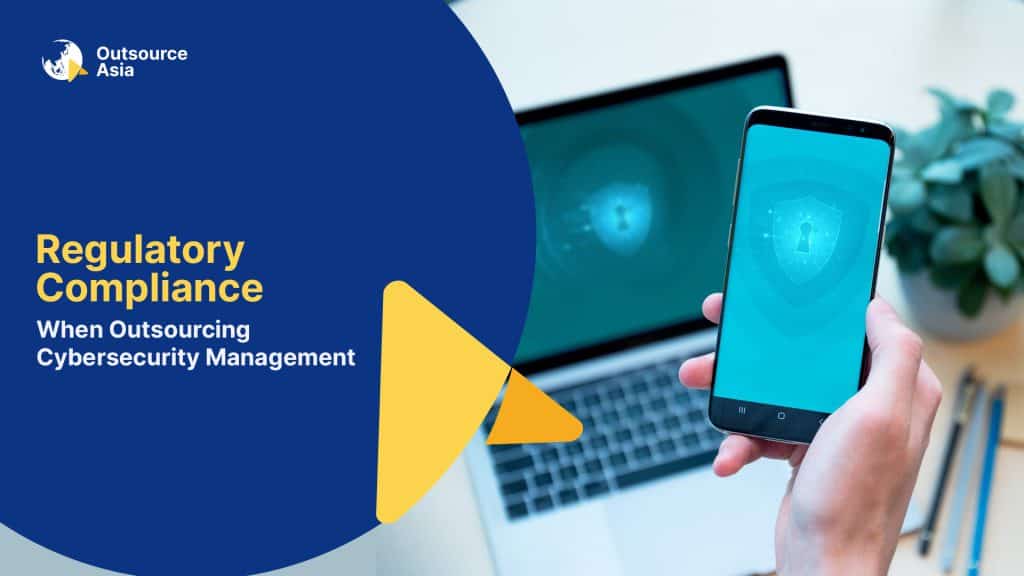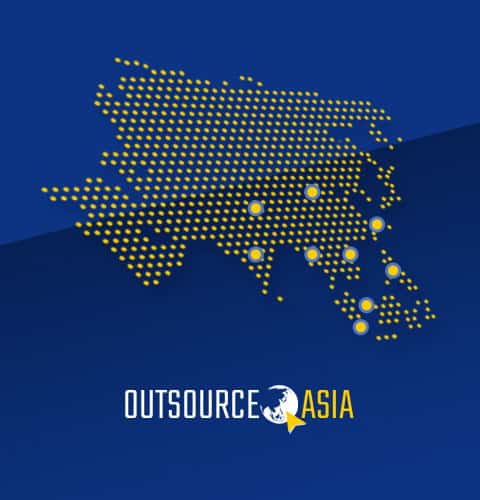
Regulatory Compliance When Outsourcing Cybersecurity Management
Businesses benefit from cybersecurity compliance in a variety of ways. For starters, it lowers the danger of a data breach (or another sort of cyberattack) because the necessary procedures and controls are in place to protect the network and data. Being breach-free also shows that a company values its consumers and is capable of safeguarding their data. This improves the company’s reputation and helps it acquire the trust and loyalty of its customers.
Complying with cybersecurity-related rules, regulations, or standards isn’t always a good idea; in certain circumstances, it’s a requirement. The US Health Insurance Portability and Accountability Act, for example, requires all US healthcare providers, healthcare clearinghouses, and health plan providers to comply (HIPAA). If data breaches occur, non-compliant healthcare organizations may face fines, penalties, and litigation. They may also face additional costs, such as the cost of giving free credit-monitoring services to victims. Furthermore, a data breach could harm their reputation, leading to a loss of consumers and business possibilities.
Cybersecurity Regulatory Compliance In Industries
1. Medical Care
The Health Insurance Portability and Accountability Act (HIPAA) is possibly the most well-known cybersecurity legislation. Healthcare institutions, insurers, and third-party service providers must create procedures for securing and protecting patient data, as well as conduct risk assessments to identify and mitigate emerging threats, according to HIPAA. Despite the fact that HIPAA has been in place since 1996, according to BitSight data, the industry still has issues with compliance.
2. Banking And Financial Services
The Federal Financial Institution Examination Council guidebook contains the most typical collection of regulations (FFIEC IT). The guidebook was recently updated to emphasize the importance of continual monitoring and business continuity management both internally and across the supply chain.
The Service Organization Control (SOC) Type 2 regulation is another regulation (SOC2). SOC2 is a severe trust-based cybersecurity methodology developed by the American Institute of Certified Public Accountants (AICPA) that helps organizations verify that third parties are securely managing customer data.
Financial services organizations must also comply with the Gramm-Leach-Bliley Act, which requires them to tell clients about how their information is exchanged and when it may have been exposed, in addition to securing digital infrastructure.
Financial regulatory authorities also issue various governing frameworks, as if that wasn’t enough. The Office of the Comptroller of the Currency (OCC), for example, has issued protocols for dealing with third-party risk.
3. The Energy Industry
According to BitSight study, 62% of oil and energy industries are at high risk of ransomware attacks due to poor cybersecurity. And almost a hundred of these companies are 4.5 times more likely to be targeted. It’s vital that these businesses examine their security programs right away to find any flaws, especially in the areas of configuration management, patching, vulnerability management, and endpoint security.
They must also follow the North American Electric Reliability Corporation’s Critical Infrastructure Protection (NERC CIP) cybersecurity guidelines. Finally, energy providers must adhere to the Critical Infrastructure Protection (CIP) Standards set forth by the Federal Energy Regulatory Commission (FERC).
4. Law Firms
The regulations governing data security can differ depending on where law firms are located. Attorneys and law practitioners have ethical and professional responsibilities to protect customer data and to notify them if a breach occurs. Lawyers should “make reasonable efforts to prevent the inadvertent or unauthorized disclosure of, or unauthorized access to, information relevant to the representation of a client”, according to ABA Rule 1.6: Confidentiality of Information.
In addition, the American Bar Association has issued many Ethics Opinions (such as Securing Communication of Protected Client Information and Lawyers Obligations After an Electronic Data Breach or Cyberattack) that offer guidance to lawyers on how to deal with cybersecurity.
5. Consumer-Oriented Enterprises
Restaurants, merchants, and consumer product companies that have direct contact with customers are increasingly adopting digital technology and data projects to improve the customer experience. While client data is required for these interactions, legislation mandates that businesses maintain and secure the privacy of their customers’ data.
The General Data Protection Regulation (GDPR), for example, established new standards for how businesses, including those in the United States, gather and keep the personal data of European Union individuals. Consumer firms that accept credit cards must also adhere to the Payment Card Industry Security Council’s Data Security Standard (PCI DSS), which establishes security rules for cardholder data.
Cybersecurity Frameworks To Achieve Regulatory Compliance
Companies can utilize cybersecurity compliance frameworks to assist them in achieving regulatory compliance. Because these frameworks have no defined format or methodology, their content varies greatly.
A high-level overview of how to develop, deploy, and manage a compliant system or operation is provided by some cybersecurity compliance frameworks. They include best practices, guidelines, and recommendations, but they don’t specify how the system or operation should be created or which controls should be incorporated. There is no link between these frameworks and any specific law, regulation, or norm.
When outsourcing cybersecurity management, discuss with your outsourcing partner your regulatory responsibilities to ascertain the precise requirements that apply to your business. These are highly contingent upon the type of data you handle, your industry, your regulatory body, and the geographic confines in which you operate.
If you have questions about cybersecurity management or are looking for tips on finding the right outsourced service providers to manage your organization’s cybersecurity, Outsource Asia can help. Schedule a FREE CONSULTATION today.


